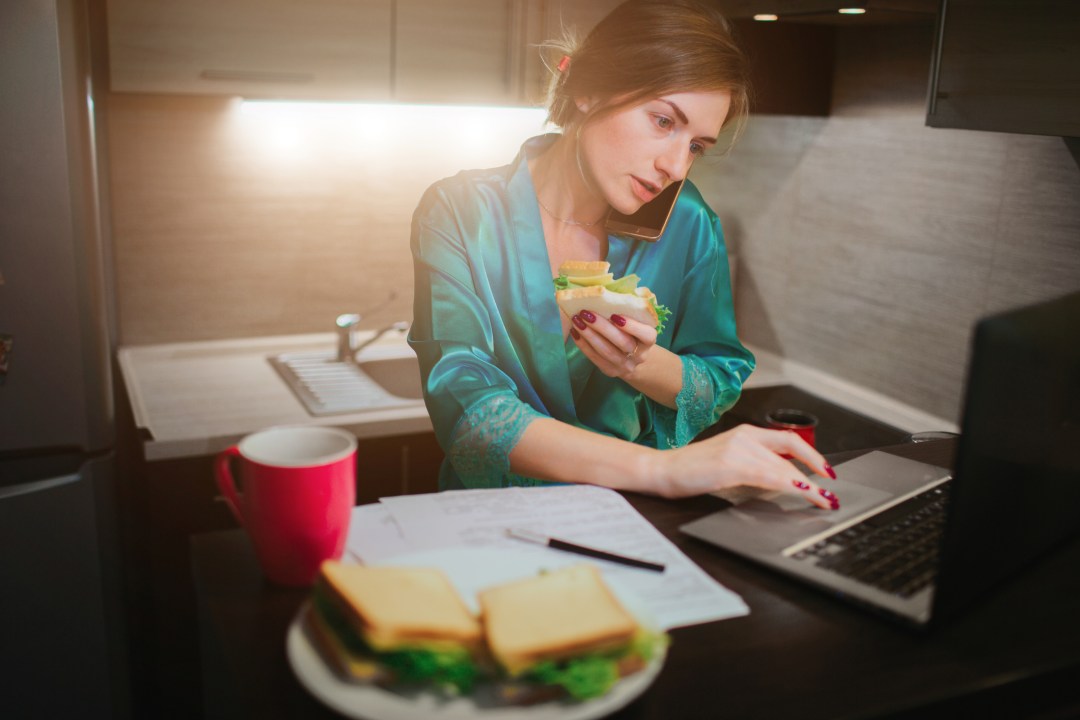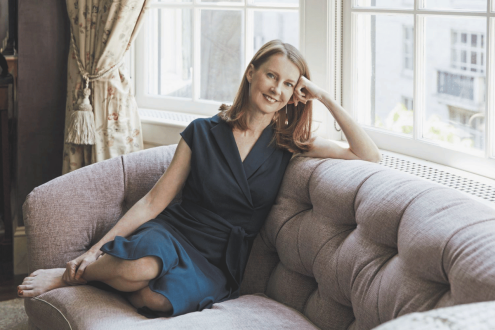How to organise your free time
Rebecca Frank explains how to organise your free time and properly disconnect from your responsibilities.

Plan your free time carefully and you’ll soon feel like you’ve got a lot more of it. Rebecca Frank explains how to organise your free time and properly disconnect from your responsibilities.
The way we spend our time is changing. The traditional 9-5, Monday to Friday job is becoming increasingly rare, along with an annual two-week holiday and Sundays spent lounging around reading the papers. We take shorter breaks, and have blurred boundaries between work and home, and while that might mean working at the weekend it can also mean popping out for a run on a sunny Monday morning.
It’s not that we have less free time – in fact, research shows the average person in Britain has around five hours and 49 minutes a day (or 40 hours a week) which is more than ever, although few of us would even realise that. According to James Wallman, author of Time and How to Spend It (Penguin), the reason we feel time-poor is that we don’t use our free time very well.
You know how it is – if you have half an hour spare it’s all too easy to reach for your phone or switch your screen and browse social media or check the news, or do some online shopping. Suddenly that window of leisure time has disappeared. Instead of allowing our free time to get sucked into a void of unmemorable, unfulfilling sameness, Wallman says we should start treating it as something precious and worthy of our full attention. As a result, we’ll do more, and feel more fulfilled, happier, and less stressed. And who can’t make time for that?
How to plan your free time
According to Wallman, one of the main reasons we’ve become so bad at using our free time is that we don’t treat it as important or a priority. So, we don’t plan things for the weekend or lunchtime or those couple of hours in the evening, we just let it come along and get sucked up by all the usual suspects.
That doesn’t mean you should have something exciting planned for every minute of leisure time (that would cause more stress), but that you could plan the little things that don’t require much organising but do require conscious intention. Things like getting outdoors, spending time with family and friends, doing some exercise, watching a great film – even having sex with your partner.
If you want to look at Facebook for an hour or binge-watch Netflix, that’s fine says behaviour expert Nir Eyal, author of Indistractable (Bloomsbury), but only if it’s done intentionally. “The time we plan to waste is not wasted time,” he says. Doing nothing is also a good skill and one that’s hard to perfect and worth practising because if you constantly feel like you should be doing something you’re much more likely to make poor choices with your time.
Next steps to organise your free time
Ask yourself what you want from your free time. If you’ve had an exhausting week and need to flop, go to the cinema or download a film you’ve been wanting to watch or even schedule a lie-in or some time just to be by yourself.
If you’d like to do something different from your usual routine, book theatre tickets or a comedy club, a meditation class or a restaurant you’ve never been to.
Start the day well
Before you check your phone, switch on the radio, TV or any devices in the morning take 15 minutes to do something you really enjoy. It might be yoga, reading a chapter of your book, going for a short walk, baking some muffins, cuddling your partner. This will set your mood for the day and get things off on the right track – worth setting your alarm a bit earlier for.
Author Stephen Covey said we spend most of our time responding to urgent tasks (both important and unimportant) and the tasks that are important but not urgent get pushed to the bottom of the to-do list and we so we rarely get to them. Yet very often these are the things that hold the most meaning and lasting value. Things like making a photo album, planting your garden, inviting friends over or arranging a girl’s weekend.
Plan your breaks
Take proper breaks throughout the day where you spend 15 minutes doing something intentional and relaxing for you that allows you to feel connected to the present.
Make a list of the non-urgent, high-importance things you want to do and aim to do something from this list every day. Whenever you do add it to a new chart called Daily Wins.
Avoid distractions
Are you full of good intentions but rarely see them through? Neer Iyal says to understand distraction we need to think of its opposite – traction. “Traction is the action that pulls you towards what you want to do with your time,” he explains. “Then there are the distractions – the things that prod us and steal our attention away.”
These can be external triggers – the ‘pings and dings’ in our lives – but a more common source is what Iyal describes as the internal triggers, the uncomfortable sensations we seek to escape. Just like with physical discomfort, when we experience an uncomfortable emotional state, we seek some kind of emotional pacification to help us cope. “When we’re lonely we go to Facebook, if uncertain we Google it, bored we check the news – all of these are catering to uncomfortable emotional sensations,” says Iyal who likens time management to ‘pain management’.
The way to avoid this is to control how you respond to feelings so instead of them leading to distraction, you channel those emotions – stress, anxiety, uncertainty – into good. Start by recognising the trigger and identifying the preceding emotion to that distraction. Ask yourself what were you feeling before you got distracted? Just writing that down is incredibly powerful. It’s helpful to remember that emotions crest and subside like a wave and like a surfer you can ride them out.
The 10-minute Rule
Try the 10-minute rule where you allow yourself anything you want in 10 minutes. When you feel the temptation to give in, spend 10 minutes getting back to your task or exploring that sensation.
Self-compassion is very helpful here. Rather than shaming or blaming, accept that maybe you’re stressed because what you’re doing is tough. The idea is that when you get distracted in future you’ll know why and can do something about it.
Do one thing well
The term ‘time confetti’ was coined by experts to convey the fracturing of time that happens when we multitask. Also known as contaminated time, it goes like this – you’ve got a spare hour, so you decide to do something like go to the gym or for a coffee with a friend. During that time, you receive a few emails and texts, some of which you read and reply to, get a phone call, a reminder to do your online shop, a pop-up from a food delivery company about tonight’s offer which you click on and read etc.
In total these may only take a few minutes but what they do is interrupt you continuously, so you never get a decent spell of undisturbed time. This can happen while you’re out for dinner, in the park with the kids, on holiday, while working at your desk etc.
The result? Leisure time feels unrelaxing and stressful because work or your friend’s problems or a decision about what to eat for dinner causes your mind to shift away from what you’re meant to be doing and then it takes a while to shift back again.
Make sure to disconnect
Disconnect when you’re enjoying free time. Try leaving your phone at home if you’re going to the park with the kids or out for dinner, lock it away in the evening or at least block notifications. If you’re going away for a weekend, see how it feels to take a break from social media– one study showed that taking a five-day break from Facebook reduced levels of the stress hormone, cortisol and improved feelings of life satisfaction.
Prioritise chores and delegate, at home and work, so your time doesn’t become about servicing everybody else’s needs and not your own. Rethinking your expectations can help here too – everything can’t be perfect all the time.
Make the most of time off
The average length of time we spend on holiday has been gradually decreasing. In 2019 the average length of a holiday was 8.7 days; short breaks are getting more popular as are staycations. While you might think that the longer you’re away for the more relaxed you’ll feel afterwards, research suggests it’s as much about what you do on holiday that makes you feel satisfied and rejuvenated as how long you’re away for.
Obviously different people find different kind of holidays relaxing but as a rule if you make your days varied and include some different experiences, you’ll stay interested and engaged as you adapt to new environments.
In his book Four Thousand Weeks, Oliver Burkeman explains how the reason that time seems to speed up as we age is that we have fewer new experiences. “Life becomes more about routine, we stick to the same few places, the same few relationships and jobs – the novelty tapers off.”
New experiences are important but not always practical – if you have a job and children or parents to care for, you can’t keep moving house, going on holiday. “The alternative is to find novelty in the life you have.”
At home: “Go on unplanned walks, take a different route to work, take up photography or nature drawing or keep a journal. Play I Spy with a child – anything that draws your attention more fully to what you’re doing in the present,” says Burkeman.
On holiday: If you like going back to the same places that’s fine, familiarity can be really relaxing. But try to include some new experiences too to keep you interested, challenge your brain and help create memories.
READ MORE
How to find what motivates you









